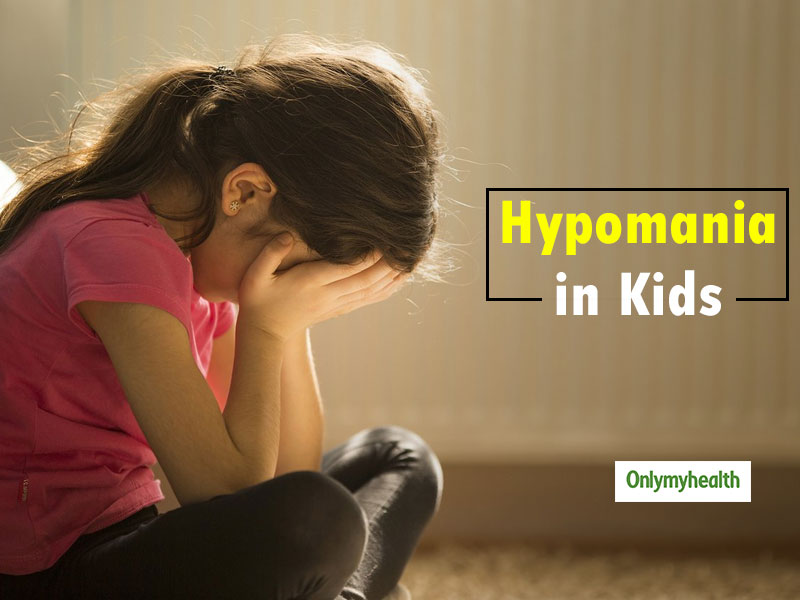
When a disorder such as hypomania is suspected, there is a lot of energy witnessed in the person. Kids with the symptoms of hypomania may come across as notorious kids. However, the reasons may be different and something, which could be difficult to control by the child. Hypomania is a type of milder form of mania. Mania is the condition when a person starts feeling very energetic, which is due to mood swings where the person is physically and mentally charged. Hypomania is a condition where the energy level of the person is higher than usual.
Table of Content:-

To understand the syndrome better, following are a few symptoms of hypomania across all age groups:
- Sudden changes in mood and energy levels with remarkable variations visible to other people
- Working or playing for maximum time without stopping. Also, finding it difficult to sit at one place and work
- Loss of sleep or erratic sleep patterns
- Sense of pride and overconfidence
- Excessive talking and chattering
- Erotic thoughts and acts to arise in the mind of older people as well as kids in some cases
- Getting angry and showing signs of anger on the smallest of the instances
Hypomania Treatment
The energy level within the person increases when there are symptoms of hypomania witnessed. Doctors recommend medicines for hypomania treatment in several cases. In hypomania, the person’s sleeping pattern deteriorates, so it is essential to determine the right time to sleep. Sleep at one time and try to wake up at the same time. In such situations, keep a check on your daily routine. In kids, such symptoms should be immediately reported to a physician for immediate diagnosis and treatment.
Also Read: 7 Signs Which Indicate That Your Kid Is Suffering From a Sleep Disorder
Hypomania In Kids

Following are some signs that that can be linked to hypomania in children:
#Talking more than usual
There might be an unusual urge in the child to speak, more or less as an obsession to discuss anything under the blue sky. This can also lead to an inability to listen to others while talking. Talking too loudly, too fast or talking about weird topics can be some of the significant symptoms in kids. In cases like these, kids may jump from topic to topic, without making any sense.
# Grandiosity
There might chances where the child starts feeling ‘extra gifted’ or even superior from other kids. The child could get thoughts that he/she may do anything, which might be unusual for their age. The child may even show symptoms like urges to do something more than their age or aspire big things, which might not make sense at that very moment.
# Risky behaviour
There can be instances where the child displays dangerous wishes to risk his/her life like by jumping from heights, undertaking dangerous activities as per their age or even give away their possessions. It may also happen that the child may think that he/she has special powers to save the world.
Also Read: Treating Autism Is Possible With Stem Cell Therapy
Helping a Child With Hypomania

If you think that these symptoms are increasing with time, it is best to consult a doctor for proper care. However, the following ways can help you deal with a hypomanic child with care:
- Be understanding and caring towards the child
- Listen to his/her thoughts and talk to them for probable solutions
- Encourage your child when he/she shares their views. Ensure that you are listening to everything the child says
- Help your child have fun the healthy way
- Keep explaining your child the reasons behind such thoughts and give him enough space to deal with their thoughts effectively
- Seek medical help for medication and therapy if required
Read more articles on Children’s Health
Read Next
Spot The Stomach Bug In Your Child
How we keep this article up to date:
We work with experts and keep a close eye on the latest in health and wellness. Whenever there is a new research or helpful information, we update our articles with accurate and useful advice.
Current Version